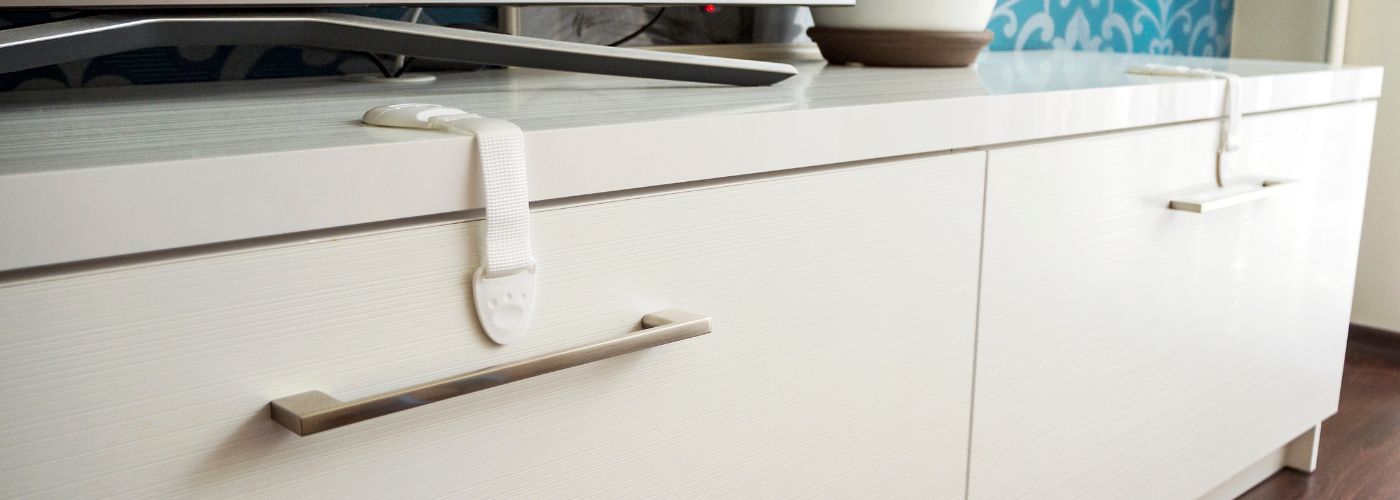Preparing your home for a nanny ensures a smooth transition for your family. A welcoming and organized environment helps the nanny focus on providing quality care for your child. Setting up your home thoughtfully also demonstrates your professionalism and consideration as an employer. Taking these steps will create a positive experience for both the nanny and your family. Let’s go over tips on how to prepare your home for a nanny.
Ways To Prepare Your Home For A Nanny
Begin by making sure your home is organized and free of unnecessary clutter. An organized space allows the nanny to navigate their tasks easily and efficiently. Create a designated area for the full-time nanny to store personal belongings such as a bag, coat, or keys.
If the nanny will be staying overnight or working long hours, prepare a comfortable guest room or sleeping area with fresh linens and basic amenities. Provide detailed instructions for using household appliances like the washing machine, dishwasher, or thermostat.
Additionally, prepare a list of important contact numbers, including your child’s pediatrician, emergency services, and trusted family members or neighbors. A thoughtfully prepared home sets the stage for smooth and effective childcare.
Discussing Expectations And House Rules With Your Nanny
Clear and open communication is essential when welcoming a nanny into your home. Take time to sit down together to discuss your family’s values, routines, and specific expectations.

Share detailed information about daily schedules, including wake-up times, meals, and nap routines. Be sure to outline household rules, such as limits on screen time, dietary restrictions, and acceptable disciplinary approaches.
Discuss boundaries regarding areas of the home that are private or off-limits. Encourage the nanny to ask questions and share their concerns, as this helps foster mutual understanding. Establishing clear expectations and rules upfront paves the way for a respectful and harmonious working relationship.
Create An Inventory Checklist For Childcare Essentials
An inventory checklist is an excellent way to ensure the nanny has all the necessary tools to care for your child effectively. Include items such as diapers, wipes, formula, snacks, and bottles for infants.
For older children, add toys, books, arts and crafts supplies, and educational materials. Stock your first-aid kit with bandages, antiseptics, and other basic supplies, making it easily accessible for the nanny.
Label storage areas for clothing, utensils, and frequently used items to save time and minimize confusion. Keep extra supplies readily available to avoid disruptions during the day. A comprehensive checklist ensures that the nanny or nanny company is always prepared to meet your child’s needs.
Childproof Your Home For Safety
Childproofing your home is a crucial step in ensuring your child’s safety and giving the nanny peace of mind. Install safety gates at the top and bottom of staircases, and secure heavy furniture to the walls to prevent tipping accidents.

Use outlet covers to protect children from electrical shocks and ensure windows have locks or safety latches to prevent falls. Remove small objects, such as coins or buttons, that could pose choking hazards.
If you have a pool, install a secure fence with a self-locking gate or use a pool cover when not in use. Take the time to walk through your home with the nanny, pointing out safety measures and addressing any potential risks.
A fully childproofed home creates a secure environment where everyone can focus on care and development.
Tips For Securing Hazardous Items
Securing hazardous items in your home is vital to prevent accidents and ensure your child’s safety. Store cleaning products, detergents, and other chemicals in locked cabinets or high shelves that are out of reach.
Medications should be kept in childproof containers and placed in a secure location. Sharp objects like knives, scissors, and tools should be stored in safety containers or high drawers.
If you own firearms, they must be locked in a secure safe with ammunition stored separately. Walk through safety procedures with the nanny, explaining how to handle any accidental exposures or emergencies.
Taking proactive measures to secure hazardous items minimizes risks and gives you and the nanny peace of mind.
Have Effective Communication With Your Nanny
Building effective communication with your nanny is essential for providing the best possible care for your child. Use tools like a daily journal or a childcare app to share updates on meals, activities, and milestones.
Schedule regular check-ins to discuss progress, challenges, or feedback, ensuring that both you and the nanny stay aligned. Encourage the nanny to share their observations about your child’s behavior, development, and any concerns they may have.
Make sure the nanny knows how to contact you in case of emergencies or urgent questions. Open and consistent communication builds trust and ensures that your child’s needs are always prioritized. Together, you and the nanny can create a supportive and nurturing environment for your child.

